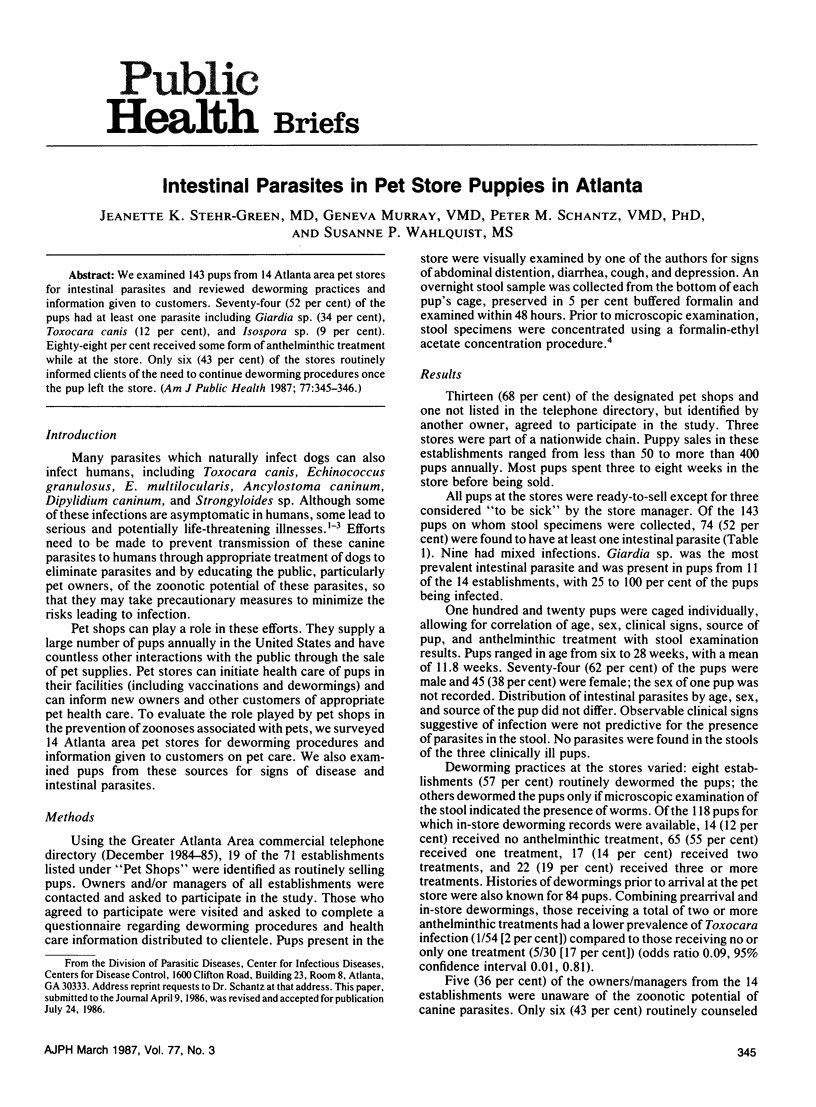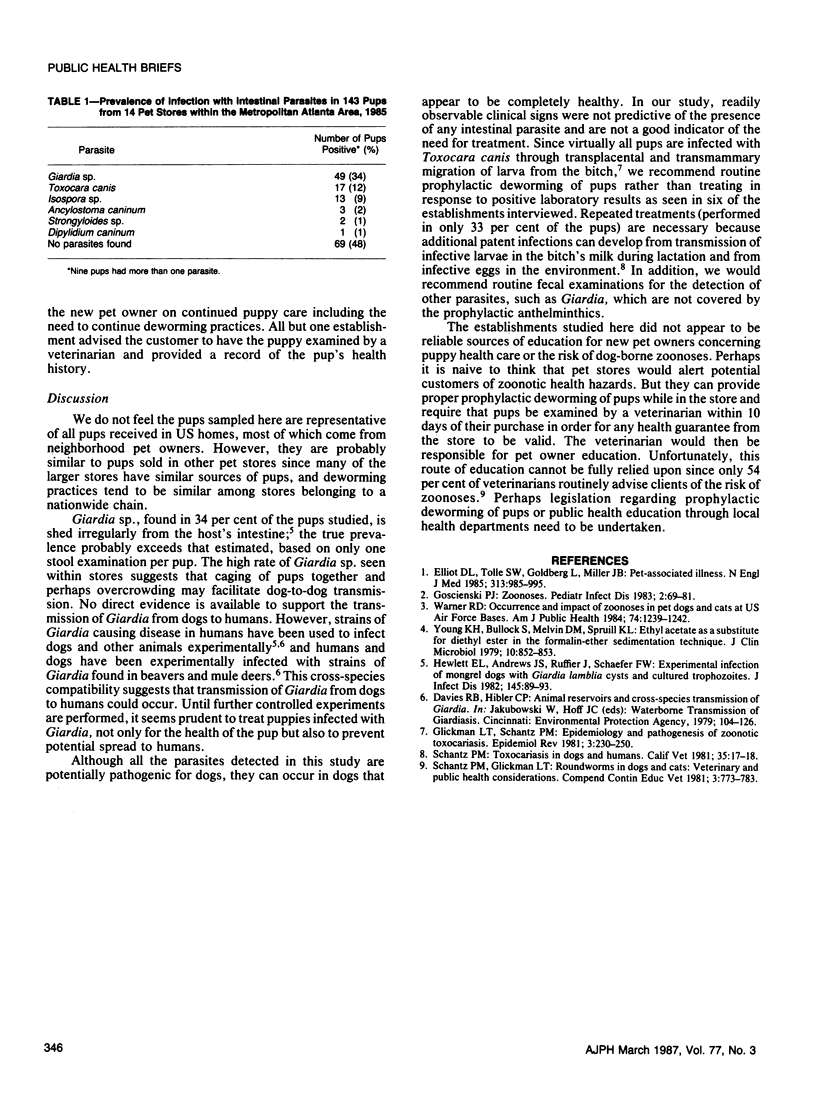Abstract
We examined 143 pups from 14 Atlanta area pet stores for intestinal parasites and reviewed deworming practices and information given to customers. Seventy-four (52 per cent) of the pups had at least one parasite including Giardia sp. (34 per cent), Toxocara canis (12 per cent), and Isospora sp. (9 per cent). Eighty-eight per cent received some form of anthelminthic treatment while at the store. Only six (43 per cent) of the stores routinely informed clients of the need to continue deworming procedures once the pup left the store.
Full text
PDF

Selected References
These references are in PubMed. This may not be the complete list of references from this article.
- Elliot D. L., Tolle S. W., Goldberg L., Miller J. B. Pet-associated illness. N Engl J Med. 1985 Oct 17;313(16):985–995. doi: 10.1056/NEJM198510173131605. [DOI] [PubMed] [Google Scholar]
- Glickman L. T., Schantz P. M. Epidemiology and pathogenesis of zoonotic toxocariasis. Epidemiol Rev. 1981;3:230–250. doi: 10.1093/oxfordjournals.epirev.a036235. [DOI] [PubMed] [Google Scholar]
- Goscienski P. J. Zoonoses. Pediatr Infect Dis. 1983 Jan-Feb;2(1):69–81. doi: 10.1097/00006454-198301000-00018. [DOI] [PubMed] [Google Scholar]
- Hewlett E. L., Andrews J. S., Jr, Ruffier J., Schaefer F. W., 3rd Experimental infection of mongrel dogs with Giardia lamblia cysts and cultured trophozoites. J Infect Dis. 1982 Jan;145(1):89–93. doi: 10.1093/infdis/145.1.89. [DOI] [PubMed] [Google Scholar]
- Warner R. D. Occurrence and impact of zoonoses in pet dogs and cats at US Air Force bases. Am J Public Health. 1984 Nov;74(11):1239–1243. doi: 10.2105/ajph.74.11.1239. [DOI] [PMC free article] [PubMed] [Google Scholar]
- Young K. H., Bullock S. L., Melvin D. M., Spruill C. L. Ethyl acetate as a substitute for diethyl ether in the formalin-ether sedimentation technique. J Clin Microbiol. 1979 Dec;10(6):852–853. doi: 10.1128/jcm.10.6.852-853.1979. [DOI] [PMC free article] [PubMed] [Google Scholar]


